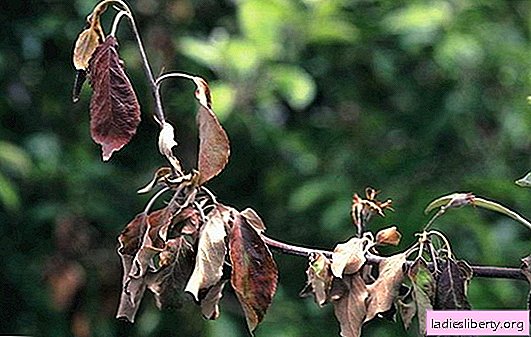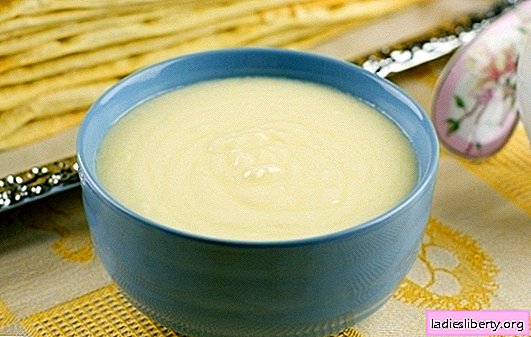
Inflammation of the testicle or orchitis is a serious disease of the stronger sex, which affects the organs of the scrotum.
Usually it has an infectious nature and is accompanied by a host of unpleasant symptoms.
Let us consider in more detail the causes of testicular inflammation in men and the best methods for eliminating this ailment.
Testicular inflammation in men: main causes
Most often, orchitis in men develops for the following reasons:
1. The infection in the testicle from the affected closely located organs. Most often, pathogenic microbes enter the testicle from the urethra or bladder.
2. An acute infectious disease of the upper respiratory tract, which gave complications in the form of testicular inflammation (pneumonia, bronchitis, tonsillitis, sinusitis, etc.).
3. Syphilis (if he was not cured in a timely manner).
4. Gonorrhea.
5. Chlamydia and other diseases of this group.
6. The development of inflammation against the background of a prolonged course of measles, flu, mumps or herpes.
7. Stagnation in the genital area and pelvic area. An irregular sexual life of a man can provoke this. Moreover, in the absence of sex in the human body, blood circulation in the genitals and the outflow of seminal fluid are disturbed. In advanced cases, this can lead to problems with potency and even infertility.
8. Bacterial lesions of the genitals.
9. Testicular injury.
10. Subcooling.
11. Abuse of alcohol increases the risk of developing orchitis in men.
12. Brucellosis.
13. Damage to gonococci and other genital infections.
14. Excessively active sex life (major trauma during sexual intercourse).
15. Lack of active (sedentary) lifestyle.
16. Prostate adenoma.
17. Pyelonephritis.
Besides, diseases that suppress the human immunity can cause orchitis, making it more vulnerable to this kind of pathology. Such diseases are diabetes mellitus, chronic hepatitis and HIV infection.
Moreover, it increases the risks of testicular inflammation and severe physical or psycho-emotional exhaustion.
Testicular inflammation in men: symptoms and signs
Orchitis has two forms: acute and chronic. Each of them is accompanied by its own characteristics.
Acute testicular inflammation in men has the following symptoms:
1. An increase in body temperature occurs at the very beginning of the disease.
2. The appearance of sharp cutting pains in the testicle, which can give in the back, lower back and groin. In this case, the pain will only intensify when walking and physical exertion.
Pain in the testis is justified by severe inflammation of the testicle, in which there are many nerve endings.
3. Pain during palpation of the testicle.
4. Swelling and an increase in the size of the affected testicle.
5. Redness of the skin near the testicle.
6. The patient suffers from all signs of intoxication. He may experience headache, nausea, chills, dizziness, and severe weakness.
7. Sleep disturbance due to severe pain.
In the absence of timely treatment, acute orchitis becomes chronic. Such testicular inflammation in men has the following symptoms:
1. Sealing the affected testicle.
2. Darkening of the skin color of the scrotum.
3. Constant aching pain in the groin.
4. Pain during urination and sexual intercourse.
5. Redness of the skin of the scrotum.
6. The wave-like course of pain. It can either subside or aggravate again, especially after hypothermia and the transfer of viral diseases.
7. Constant weakness.
8. Reduction of sexual desire.
9. The appearance of suppuration of the testicle.
10. An increase in body temperature.
It is important to know, that if chronic orchitis is not treated, then it can easily cause serious disorders in the male reproductive system and give impetus to the development of various diseases of the prostate.
Testicular inflammation in men: treatment and diagnosis
In order to diagnose orchitis to the patient, in addition to consultation and examination with a doctor, it is necessary to pass such tests and undergo examinations:
1. A general blood test will make it possible to identify the inflammatory process and determine the possible causative agent of the disease. Active orchitis is indicated by the following results:
• increased white blood cell count;
• increase the level of ESR;
• increased lymphocytes.
2. A general analysis of urine will help establish the degree of neglect of inflammation in the patient's urogenital system.
3. Urinalysis to detect infections and bacteria.
4. Taking a smear will make it possible to establish a possible causative agent of the disease, which provoked inflammation.
5. The analysis of the patient sperm is needed to determine pathological microorganisms and identify the general condition of sperm.
6. An ultrasound of the diseased testicle will help establish whether there is fluid in it, and will also make it possible to understand the general condition of the affected scrotum.
7. MRI will help to identify the degree of the disease and the complexity of the inflammatory process in the body.
Treatment of orchitis is aimed at eliminating the focus of infection and symptoms. Traditional drug therapy involves the appointment of such groups of drugs:
1. Macrolides and antimicrobials (erythromycin).
2. Anesthetics (Analgin, Ketoprofen).
3. Cephalosporins (Cepepim).
4. Anti-inflammatory drugs (ibuprofen).
5. Antibiotics of a wide therapeutic spectrum of action are prescribed for prolonged course of the disease and suppuration of the testicle.
6. The appointment of probiotics is recommended for the restoration of microflora, which may be impaired when taking antibiotics.
Testicular inflammation in men: features of treatment and prevention
Physiotherapeutic treatment involves the appointment of such procedures:
1. UV radiation.
2. Laser treatment.
3. Applications of paraffin.
It is important to know, that physiotherapy can be practiced only in the initial stages of the disease, while pus has not yet formed in the testicle. Otherwise, the use of various procedures and warming compresses is contraindicated.
When drug treatment and physiotherapy did not give the expected results, the patient is prescribed surgical treatment. Indications for it are:
1. Strong suppuration of the testicle.
2. Retention of high body temperature for ten days or more, which is not eliminated due to severe intoxication of the body and accumulation of pus.
3. Chronic orchitis in a patient who has frequent exacerbations.
4. The presence of dense painful formations in the testicle that do not resolve.
If you do not cure orchitis or do not diagnose it in time, then it can cause the following complications in the patient's condition:
1. Transition to a chronic form (in this case, the disease will be much more difficult to cure and the general course of treatment will last for a long time).
2. The accumulation of fluid in the testicle (between its shells).
3. The suppuration of testicular tissue and the development of an abscess or small microabscesses.
4. The development of inflammation of the appendages can occur with the spread of inflammation from orchitis.
5. The transition of inflammation to another testicle.
6. A decrease in the size or asymmetry of the location of the diseased testicle.
7. The appearance of infertility is observed in more than 50% of all cases of orchitis, which was not cured on time.
8. Violation of ejaculation.
9. Damage to the pathways of the sperm.
10. Violation of an erection.
11. Disorders in the hormonal background.
12. Violation of sexual desire (libido).
To prevent the development of orchitis, it is important for a man to adhere to the following doctor's advice:
1. Avoid excessive physical exertion.
2. Avoid psycho-emotional overfatigue and stress.
3. Timely treat all diseases of the genitourinary system.
4. Treat those diseases that can indirectly cause testicular inflammation.
5. In cold weather, it is advisable to wear special thermal underwear to prevent hypothermia of the genitals.
6. Avoid casual sexual partners and unprotected sexual intercourse.
7. Avoid overly active sex life.
8. Go in for sports.
9. Lead an active lifestyle.
10. Refuse to drink alcohol.
11. Do not masturbate.
12. With prolonged sexual abstinence, it is imperative to do physical exercises to relieve congestion from the pelvis.
13. Use special devices for protection in dangerous sports (hockey, football, etc.).
14. Take vitamin complexes
15. Regularly visit a urologist to prevent orchitis.











